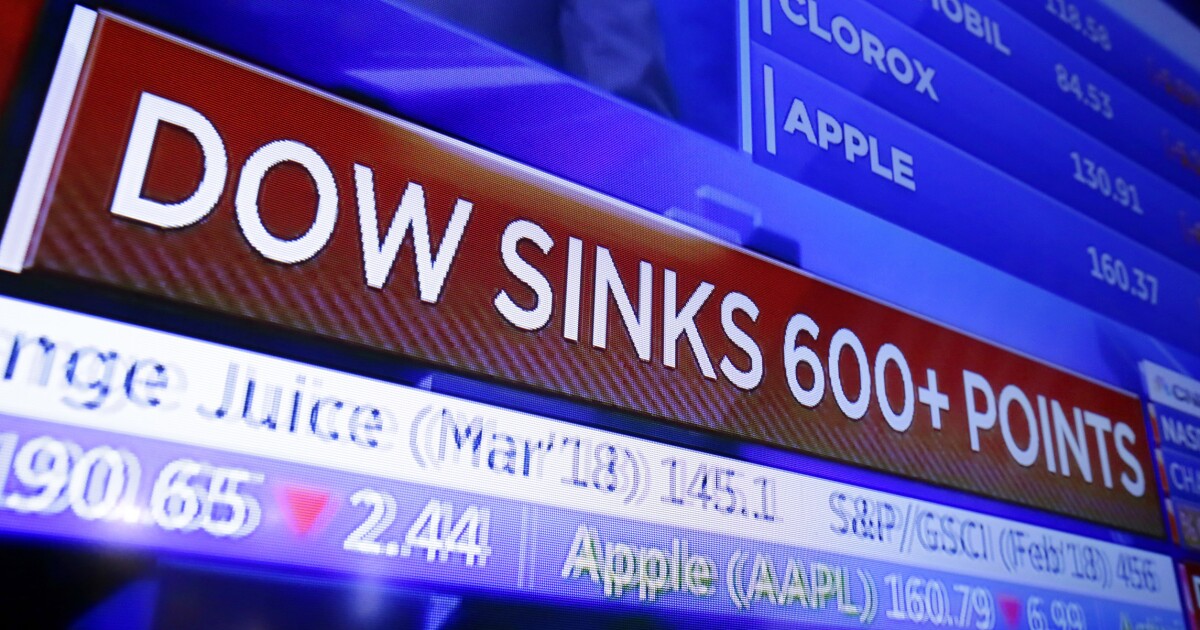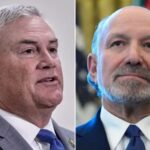

The combination of soaring inflation and monetary policy tightening by the Federal Reserve is leading investors into cash as the stock market continues to decline and fears of a recession grow.
A Bank of America fund manager survey found that investors are now hoarding cash at the highest rate since the 9/11 terrorist attacks, surpassing even the levels set during the Great Recession and the peak of the coronavirus pandemic.
The monthly survey found that investors see forceful Fed tightening as the biggest risk right now. After a quarter-percentage-point hike of its interest rate target in March, this month the central bank announced the most aggressive interest rate hike in more than two decades, raising rates by half a percentage point. Investors expect more half-point hikes are in store.
Investors also fear a recession that will result from the Fed, led by Chairman Jerome Powell, jacking up rates. Powell is hoping to pull off a so-called soft landing, meaning driving inflation down without crashing the economy. Concerns of a recession outweigh other fears about inflation and the war in Ukraine.
FED DELAY ON RAISING INTEREST RATES ‘WAS A MISTAKE,’ BERNANKE SAYS
As a possible recession looms and prices continue to increase at the fastest pace since the inflation of the ’70s, the stock market has tumbled precipitously. The S&P 500 has fallen more than 15% since the start of the year, the Nasdaq composite has shed nearly 25% of its value, and the Dow Jones Industrial Average is off by about 11%.
“Stocks are prone to imminent bear rally, but the ultimate lows have not yet been reached,” Bank of America analysts said of the survey results.
Bank of America’s findings are bolstered by a MagnifyMoney survey released this week, which also showed that as economic conditions become increasingly choppy, investors have been pulling their money out of the stock market.
The report found that nearly 40% of investors have pulled funds from the market in the past year in response to current events. Some 70% of those queried said that current events, such as changes to economic policy, the pandemic, and war in Ukraine, factor into their financial decisions.
Investments in the cryptocurrency sphere are also taking a beating.
Despite loyal devotees and some major institutional investors, cryptocurrencies across the board have been in an aggressive descent over the past few months. Bitcoin, the flagship cryptocurrency, is now hovering at about $30,000 after falling to nearly $25,000 earlier in May. That represents a more than 50% decline from its peak of $69,000 last November.
Lawrence Cunningham, the author of numerous books on classic investing and a professor at George Washington University, said investors are nervous and that it’s natural to ask questions about whether to reallocate assets or change investment strategies but that he thinks those who are currently positioned in a conventional portfolio setup are likely better off just sitting tight.
“There may be a period of pain … but as long as you’ve got time, it’s really an investment, and it’s not your piggy bank you need tomorrow. Let it ride and just sit it out,” Cunningham told the Washington Examiner.
Historically speaking, a diversified swath of investments that are parked during economic downturns have eventually bounced back with time.
For instance, during the global financial crisis, the S&P 500 cratered by about 46% from July 2007 to January 2009, but by January 2013, it had already recouped those losses. And by July 2015, the S&P 500 was up by about 40% from where it was in July 2007, prior to the crash.
Chase Hinderstein, director-portfolio manager for the Wise Investor Group at Baird, told the Washington Examiner that the markets are already pricing in a recession resulting from the Fed’s tightening monetary policy, although he said the general consensus is that it won’t be a particularly deep or long-lasting downturn like the Great Recession.
For those who are looking to hit the markets while they are down, Hinderstein said, this summer offers investors a good opportunity to buy up oversold valuations for solid businesses and that it would be a mistake to eschew them and avoid those opportunities.
“The overall market is not down that dramatically. It just feels worse because so many investors were leveraged to what was working so easily for so long,” he said.
CLICK HERE TO READ MORE FROM THE WASHINGTON EXAMINER
The country’s global economic upheaval comes as Powell was recently reconfirmed to lead the Fed in a bipartisan vote. All eyes will be on him and other members of the Federal Open Market Committee as they work to thread the needle of tamping down inflation while avoiding a recession.
Even if the central bank is successful in avoiding a full-blown recession, inflation will likely remain stubbornly high throughout the rest of the year because it has long legs and interest rate hikes take some time to move prices down.






